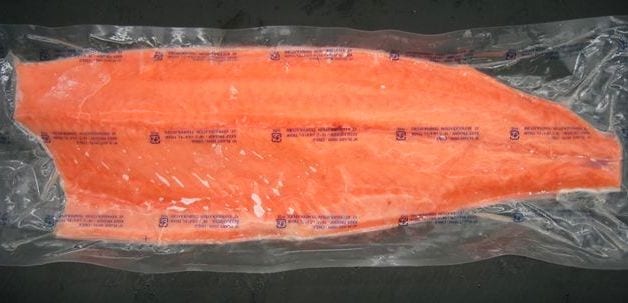Federal grants aimed at promoting farmers markets will aid in promoting flash frozen seafood from a community supported fishery based in Sitka and statewide farmers’ market management and training led by Cook Inletkeeper in Homer.
The $99,141 grant to the Alaska Longline Fishermen’s Association and $403,334 grant to Cook Inletkeeper were among $14.4 million in farmers’ market promotion program grants recently by the U.S. Department of Agriculture’s Agricultural Marketing Service.
ALFA plans to use its funds to create and distribute a multi-media sustainable seafood outreach tool kit extolling the benefits of flash frozen fresh seafood. The kit will allow Alaskans Own (www.alaskansown.com) and other rural producers to access local and regional markets. Alaskans Own, a non-profit community supported fishery, is a program of the Alaska Sustainable Fisheries Trust and ALFA, an alliance of over 150 small boat fishing families committed to good fisheries policies and research supporting resource conservation initiatives to keep fishing access rights local and other efforts to ensure the health and longevity of Alaskan fisheries.
“Many Alaskans are used to putting up seafood for the winter in their own freezers, and understand the high quality of carefully-handled flash frozen fish,” said Linda Behnken, executive director of ALFA. “However, many Americans hold onto the stereotype that fresh is always better than frozen when it comes to seafood. We have been working to show consumers why choosing frozen can be a better choice for quality – and for the environment”.
The conservation organization Ecotrust, based in Portland, Ore., said it has found that “23 percent of seafood at supermarkets never makes it the dinner plate and goes to waste.” ALFA and community-based fishing partners at Port Orford Seafood and Real Good Fish worked with Ecotrust, Oregon State University, Seafood Analytics and the Oregon Food Innovation Lab to compare consumer reactions to seafood in a blind taste test. The study allowed consumers to compare “frozen” and “fresh” seafood. The study utilized a new device, created by Seafood Analytics, that uses an electric current to measures freshness.
The results, according to Ecotrust, were telling; “not only did consumers prefer the frozen fish, but the flash-frozen products also rated higher in quality and freshness, as measured by the CQR.”
Cook Inletkeeper will use its grant to support statewide farmers market management and market farmer training to benefit farmers’ markets vendors and customers.
The project team also plans to provide promotional assistance and professional development opportunities to Alaska Farmers Market Association member farmers’ markets and producers, aimed at increasing market and producer sustainability. The targeting pilot effort will be across the Kenai Peninsula.














